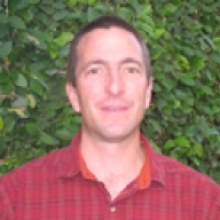CEE Seminar: Challenges Associated With Geologic CO2 Sequestration -- Can A Fractured Caprock Self-heal?

Associate Professor
University of California, Irvine
Civil & Environmental Engineering
Abstract: The ability of geologic seals (caprocks) to prevent leakage of fluids injected into the deep subsurface is critical for mitigating risks associated with greenhouse-gas sequestration, waste disposal and natural-gas production. Fractures and faults caused by tectonic or injection-induced stresses create potential leakage pathways. Fluids migrating through leakage pathways react with the host rock leading to mineral dissolution and/or precipitation, which may mitigate or exacerbate migration of injected fluids to shallow aquifers and the atmosphere; predicting which outcome is more likely requires improved understanding of the coupled hydrologic, geochemical and geomechanical processes that control the evolution of fracture permeability. I present results from laboratory experiments aimed at quantifying these coupled processes in a fractured dolomitic anhydrite caprock. Two experiments at different flow rates led to dramatically different observations, from a two-order-of-magnitude permeability decrease at high-flow rate to a negligible change in permeability at low-flow rate. These laboratory-scale observations demonstrate a potential sealing mechanism for fractured caprocks. However, associated scaling analyses suggest that at larger length scales, the self-sealing process may be offset by the formation of distinct channels as we observed a low-flow rate at the laboratory scale.
Bio: Detwiler is interested in fluid flow processes in porous and fractured media, including multiphase flow and transport, and the chemical/biological/mechanical alteration of subsurface properties. Understanding the scaling behavior of these often-coupled processes is critical to a broad range of current challenges including: remediation of groundwater contaminants; subsurface CO2 sequestration; geothermal energy production; and nuclear waste isolation. Detwiler’s current research integrates detailed laboratory measurements of pore-scale to core-scale processes with the development and evaluation of mechanistic computational models. Ongoing efforts to scale these computational models to parallel computing architectures provide a robust approach for quantitatively extrapolating laboratory-scale observations to field-scale systems.
Share
Download
Upcoming Events
-
EECS 294 Seminar: Programming Light Diffraction for Information Processing and Computational Imaging
-
MAE 298 SEMINAR: Stretchable Electronics for Soft Biological and Robotic Systems
-
CBE Distinguished Lecture/CBE 298 Seminar: Computational Design of Peptides as Detectors, Sensors and Drugs
-
MSE 298 Seminar: Molecular Modeling in the Age of AI - From Energy Materials to Device Simulations
-
CBE 298 Seminar: Metal Electrodeposition for Modern Mineral Refining
